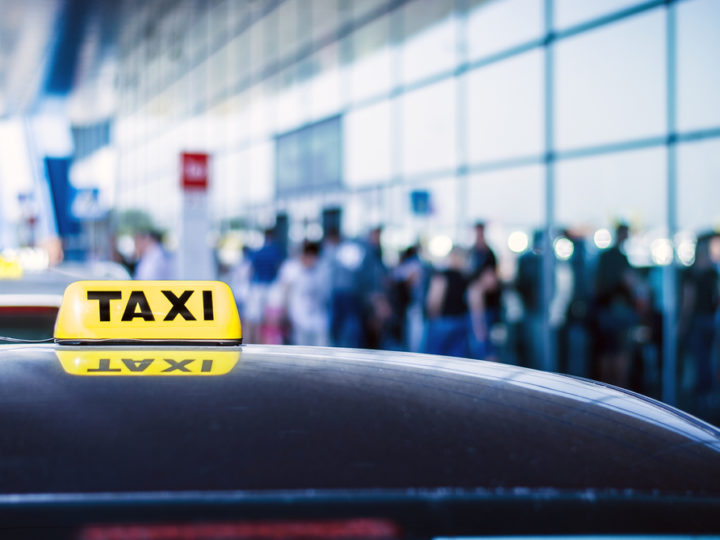
As more and more airports, malls, and other outer-city destinations pop up around the country, the transportation industry, including taxi cab services, continues to grow. In fact, this year alone, the market size of the taxi service industry is expected to increase by 4.4%.
There are many reasons to start a taxi cab company, but it’s not as simple as it may seem. This article will help you navigate the process and outline what you’ll need to get started, including what startup costs you can expect.
Once you’re ready to get started on your taxi business plan, request a free taxi insurance quote from our experienced agents.
What Do You Need to Start a Taxi Cab Company?
Obviously, the first thing you’ll need to start a taxi cab company is a vehicle. Fortunately, the classic yellow taxi cab is no longer a requirement in most cities across the U.S., which makes this step easier and more affordable. You’ll also need to apply for a commercial driver’s license at your local DMV.
Perhaps the two most important things you’ll need to start a taxi cab company are proper licensing and high-quality, comprehensive taxi cab insurance. Specific regulations vary greatly from state to state – with some states (including Maryland, Florida, and Virginia) even further regulated at the county level – so it’s crucial that you do your research locally. No matter where you are, you are likely required to register your vehicle(s) with the DMV, register your business, and obtain a business license. Additionally, most states have minimum insurance requirements specific to taxi cab companies. It’s best not to skimp on this, and rather purchase comprehensive, property and liability insurance for your taxi cab company so that you will be protected in the event of damage, theft, accidents, or lawsuits.
How Much Does It Cost to Start a Taxi Service?
Now that you know what goes into starting a taxi business we can get down to the nitty-gritty. Below is a breakdown of the major costs that come with starting your own taxi service:
Vehicle(s) and Equipment: This is the most substantial upfront cost. You can either start with a fleet of taxis or begin small with just one taxi and expand as your business grows. Keep in mind that you’ll likely need to paint the vehicle and install a meter. One high-quality, used vehicle with all the equipment and upgrades might cost around $15k, while a new one would probably cost $20k or more.
Taxi Cab Insurance: Depending on a wide range of factors, most taxi cab insurance policies average somewhere between $5,000 and $10,000 per cab per year in the U.S., on average. To learn more, check out our blog post: What’s the Average Cost for Taxi Cab Insurance? For an even more accurate and detailed idea of this cost, request a free taxi cab insurance quote with us now.
Licensing & Registration: Licensing for your taxi business will typically cost a couple of hundred dollars or so, depending on your local licensing requirements.
Business Marketing Expenses: Most successful taxi companies invest in advertising and marketing to help them establish and grow their business. The costs will vary depending on your marketing strategies, but you can always start slow and do as much as possible for free.
All things considered, the total cost of starting a taxi cab business could be as little as $20k or so with careful planning. Of course, starting a larger, multi-vehicle taxi business will likely cost much more than that. Either way, it’s crucial that you look at the specific costs in your area and come up with a detailed budget to help get your business off the ground.

Keys to Success for Taxi Cab Companies
Beyond the above-mentioned necessities, below are a few tips to position your taxi cab company for success:
- Choose your business location wisely and analyze the competition. Is there a demand for a taxi cab business locally? What are the standard local fares?
- Make a detailed business plan, including a detailed budget, a plan for marketing and promotion, and a plan for future growth.
- Determine your niche. Many taxi cab companies choose to market to a specific clientele, such as the elite, the visually impaired, the elderly, etc.
- Consider loyalty schemes or rewards for your regular customers to keep them coming back.
- Consider using your vehicle for advertising purposes, whether that be for your own business or other local businesses.
- Because it’s so important, we’ll say it again: invest in quality insurance to avoid problems down the line. The taxi cab industry comes with a fair share of risks – accidents, theft, assault, etc. – so it’s essential that you safeguard your business, your driver(s), your vehicle(s) and your passengers.
Benefits of Starting a Cab Company
Don’t let these requirements and costs scare you away, there are so many benefits to starting your own taxi cab company! As mentioned above, there is projected growth in the transport industry, so there will be more and more business opportunities to capitalize on. Furthermore, as a business owner, you will be your own boss and have a more flexible schedule. Technological advancements make managing your drivers, mapping your routes, and marketing your business easier than ever. With effective marketing, you can bring in a steady flow of cash throughout the year. Finally, having a taxi cab business can result in great returns on a monthly basis.
Recap: How Much Does It Cost to Start a Taxi Service?
Starting a taxi business does require some upfront investments, primarily purchasing your vehicle(s) and making sure you’re covered with comprehensive taxi insurance. After the initial costs though, there’s so much opportunity for success!
Are you ready to take advantage of all that the taxicab industry has to offer? If so, protecting your business, assets, and customers with proper insurance should be one of your top priorities. At OTTIS, we specialize in taxi cab insurance for drivers and companies and would love to help get you covered. To get started, request your free quote today!





